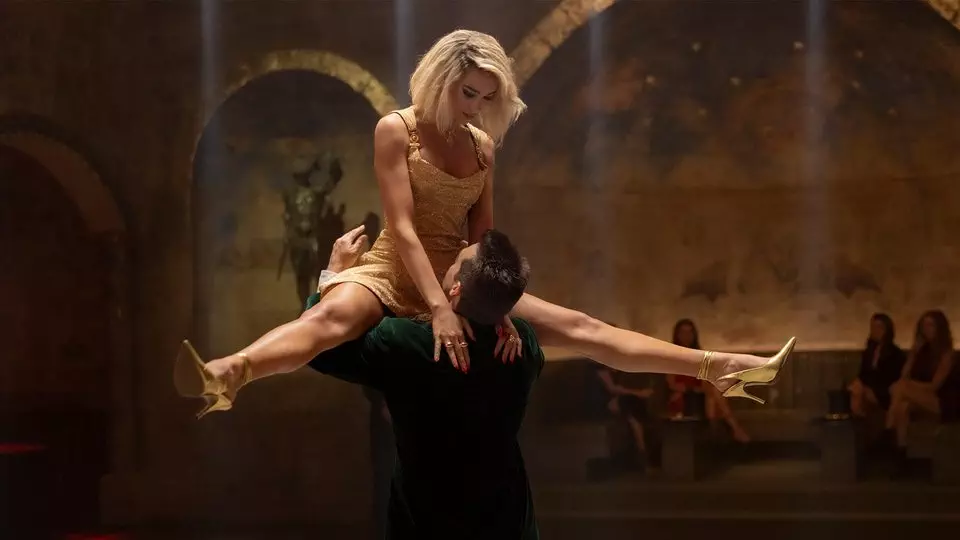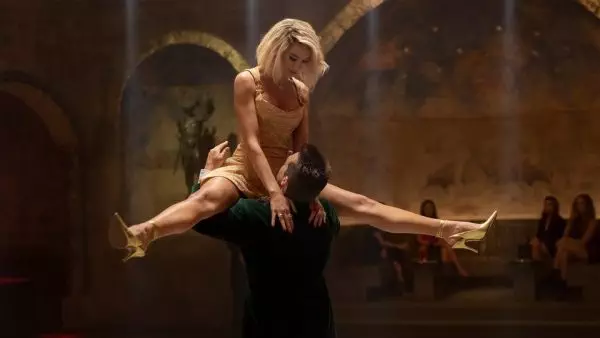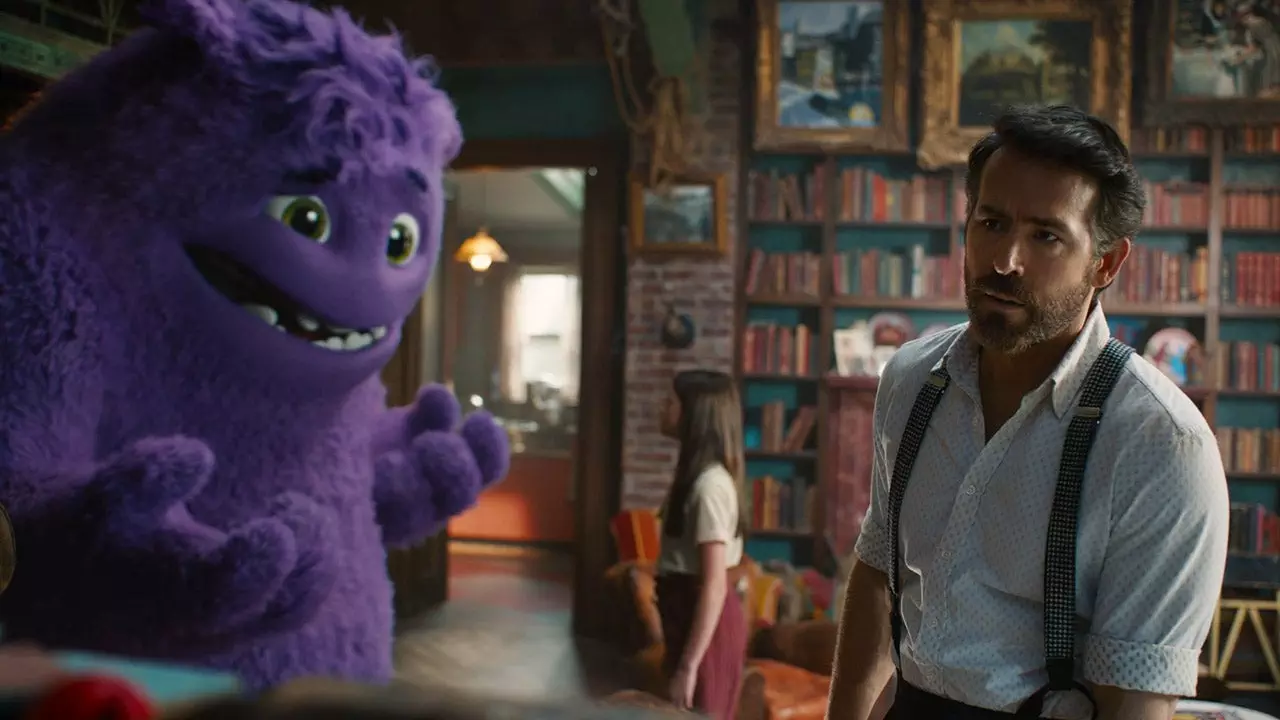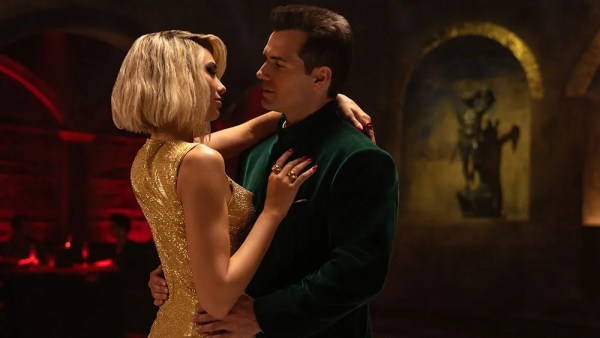Movie Reviews
Argylle (2024) – Movie Review

Argylle, 2024.
Directed by Matthew Vaughn.
Starring Bryce Dallas Howard, Sam Rockwell, Henry Cavill, Bryan Cranston, Catherine O’Hara, Dua Lipa, Ariana DeBose, John Cena, Samuel L. Jackson, Sofia Boutella, Toby Haycock, Rob Delaney, Jason Fuchs, Jing Lusi, Alaa Habib, Alfredo Tavares, Tomás Paredes, and Richard E. Grant.
SYNOPSIS:
A reclusive author who writes espionage novels about a secret agent and a global spy syndicate realizes the plot of the new book she’s writing starts to mirror real-world events in real-time.
During a Q&A for her latest entry in her spy novel series Argylle, a reader asks if Elly Conway (Bryce Dallas Howard, giving a performance that, without spoiling anything, demands physicality that she capably pulls off) is also a real spy, much like how James Bond author Ian Fleming and others were. She shoots down the theory, assuring the fan that she is a regular person who puts much research into her writing.
Directed by Matthew Vaughn, this is an adaptation of the recently released book of the same name (written for the screen by Jason Fuchs), which is penned by a seemingly unknown woman named Elly Conway. There is a massively unhinged conspiracy theory that it is a pseudonym for Taylor Swift, something that I don’t believe for a second and that Matthew Vaughn has gone on record denying, but there are so many silly plot twists here that if the worldwide pop sensation did show up at some point here, somehow it would have fit right in.
Remember that none of this necessarily means Argylle is a smart film. Elly Conway, the character, just also happens to be a writer in the narrative here, finding herself wrapped up in danger and hunted by a nefarious spy organization similar to the one in her stories (there are four books in the fictional universe, and one she is currently writing.) Elly thinks she has the ending of her fifth novel in the series all figured out, ready to send it to print with a cliffhanger ending (Henry Cavill is who she visualizes as Agent Argylle, with John Cena portraying his sidekick Wyatt), except it turns out she will have to keep the story going as there are good and bad spies tracking her who believe that her mind and wherever she takes the story next is the solution to finding the real-life master list of scandalous details regarding career criminals.
While riding the train to visit her mother (Catherine O’Hara), a bearded, unkempt, and invasive but otherwise well-meaning man named Aidan (Sam Rockwell) sits down to read one of Elly’s novels before informing her that he is a spy despite his rugged appearance and that she will have to follow his lead to escape a horde of bad guys. The film immediately launches into a refreshing, creative burst of action that sees Sam Rockwell’s average dude spy battling several generic henchmen, while Elly occasionally sees her Argylle, Henry Cavill, engaged in the same combat, all of which feels like a challenging feat in editing and choreography to pull off, not to mention pleasingly stylistic.
Would I have preferred if the narrative was far less intentionally stupid and more interested in deconstructing spies as characters and the default, handsomely charming appearances we give them in our minds? Sure, but Matthew Vaughn is still having playful fun during these action sequences, juxtaposing not only fantasy and reality, but Elly and the audience’s perception of what and who a spy can be. Regarding visual flair, it also fits in as a constant reminder that her fiction is coming to life.
However, Argylle is unquestionably a nonsensical movie with so many outlandish reveals that one of the twists is essentially a common trope just so the film can do a hard reset on who and what these characters are and want. From there, several more twists occur but with different characters in the action while inside an entirely different subgenre. The most that can be said is this: it is frustrating that even when everything is seemingly revealed about Argylle, Elly, Aidan, and the rest of her spy characters (played by an ensemble made up of exciting names such as the aforementioned John Cena, Ariana DeBose, and Samuel L. Jackson), it also feels like nothing is learned about any of them as people. Bryan Cranston also leads the rogue spy organization with an army of assassins searching for Elly, who brings his impeccable comedic skills to the villainous character.
Certain story beats that Matthew Vaughn goes for just feel impossible to properly land amidst all this insanity. There is also no denying that Argylle sags in the middle when it is doing that reset, entering the realm of seemingly endless exposition. Once past that, Matthew Vaughn is alert to how nuts this all is, with characters even commenting so.
Vaughn also uses this to his advantage to crank the action up to further outrageously gonzo levels, such as a sequence where a character skates with knives placed underneath their shoes, shooting hordes of enemies, or one that incorporates impressively choreographed dance moves and brightly colored smoke bombs into a thrilling shootout. Like most Matthew Vaughn films, there is also an upbeat licensed soundtrack playing to the violence. Admittedly, there is also some shoddy CGI, including a truly rough-looking car chase opening.

Argylle most definitely isn’t Matthew Vaughn’s strongest work as a storyteller, lacking the raw emotional hook from something such as Kingsman: The Secret Service or the political subtext found within X-Men: First Class, but he knows how to take something preposterous and amplify what makes it immensely fun. There are certainly some mixed thoughts to be had here, but there is one glaring positive: bold, bonkers action. He knows how the plant a character trait and pay that off later with some ludicrous and electrifying set pieces.
Flickering Myth Rating – Film: ★ ★ ★ / Movie: ★ ★ ★ ★
Robert Kojder is a member of the Chicago Film Critics Association and the Critics Choice Association. He is also the Flickering Myth Reviews Editor. Check here for new reviews, follow my Twitter or Letterboxd, or email me at MetalGearSolid719@gmail.com
https://www.youtube.com/watch?v=embed/playlist

Movie Reviews
My Sunshine: Jesus director returns with poetic ice-dancing drama

4/5 stars
Rarely has figure skating been shown as so pure, poetic and sensual than in My Sunshine, Hiroshi Okuyama’s feature about two young ice dancers and their coach over one winter in a small town in Hokkaido, in Japan.
Filmed in the classic four-by-three screen ratio and boasting a desaturated colour palette which gives everything a dreamy quality, My Sunshine revolves around Takuya (Keitatsu Koshiyama), a stammering boy who is as awkward at sport as he is with his speech.
Bad at school in both baseball and ice hockey, the boy finds himself captivated by figure skating – or, specifically, the elegant star skater Sakura (Kiara Nakanishi). His perseverance in trying out pirouettes is noted by the girl’s coach Arakawa (Sosuke Ikematsu), who gives the boy proper skates and then private lessons.
Sensing a prodigy in the waiting, Arakawa begins to train Takuya alongside Sakura to compete in a pairs skating competition. Through this, the man rediscovers the joie de vivre he seems to have left behind after his retirement and relocation to the rural hinterlands.
Teasing natural and dynamic turns from his cast – with Sosuke looking very much the part with his smooth moves on the ice – Okuyama delivers scenes that ooze youthful energy and human warmth.
In the film’s pièce de resistance, a scene depicting Takuya and Sakura’s full routine, the duo glide gracefully across the ice, their breathing and the crisp glissando produced by their skates saying much more about their emotions than words ever could, whether about their dedication to the sport or the unarticulated feelings bubbling within each of them.

But My Sunshine is not all sweetness and light. Its descent towards tragedy is perhaps prefigured by Okuyama’s frequent positioning of his characters as small dots in vast spaces – an allusion, perhaps, to how their fates are somehow shaped by unspoken social forces they could not control.
And it is exactly such tacit norms which will eventually snap the trio’s growing bond.
Eschewing melodrama, Okuyama simply hints at the prevalent conservative attitudes in the town, the disapproval of Arakawa’s private life never really breaking into the open beyond one single word Sakura throws at her erstwhile mentor.
It is an altercation that is as brief as it is heartbreaking, and it speaks volumes about Okuyama’s deftness in evoking such emotions through his very economical storytelling and stylistic rigour.
Movie Reviews
‘The Substance’ Review: An Excellent Demi Moore Helps Sustain Coralie Fargeat’s Stylish but Redundant Body Horror

Not long into Coralie Fargeat’s campy body horror The Substance, Elisabeth Sparkle (Demi Moore) is unceremoniously fired from her gig as the celebrity host of a daytime exercise program. The former actress’ credentials — an Academy Award, a prominent place on the Hollywood Walk of Fame — aren’t enough to save her Zumba-meets-Jillian-Michaels-style show, fittingly called Sparkle Your Life. Her producer, an oily personality conspicuously named Harvey (Dennis Quaid), wants to replace Elisabeth with a younger, more beautiful star. In his words: “This is network TV, not charity.”
The Substance, which premiered at Cannes in competition, is Fargeat’s second feature. It builds on the director’s interest in the disposability of women in a sexist society, a theme she first explored in her hyper-stylized and gory 2017 thriller Revenge. She gave that film a subversive feminist bent by turning the trophy girlfriend — a sunny blonde who is raped and murdered — into a vengeance-seeking hunter.
The Substance
The Bottom Line Uneven genre offering boosted by formal ambition and Demi Moore.
Venue: Cannes Film Festival (Competition)
Cast: Demi Moore, Dennis Quaid, Margaret Qualley
Director-screenwriter: Coralie Fargeat
2 hours 20 minutes
In The Substance, a woman also takes fate into her own hands and combats underestimation, only this time she’s at war with herself, too. Fargeat combines sci-fi elements (as in her early short Reality+) with body horror and satire to show how women are trapped by the dual forces of sexism and ageism. Beauty and youth are the targets at the heart of this film, but the director also takes aim at Hollywood’s ghoulish machinations and the compulsive physical and psychological intrusiveness of cisgender heterosexual men.
Fargeat flaunts an exciting hyperactive style. Ultra wide-angle shots, close-ups and a bubble-gum color palette contribute to the film’s surreal — and at times uncanny — visual language. The British composer Raffertie’s thunderous score adds an appropriately ominous touch, especially during moments of corporeal mutilation.
There’s a lot going on in The Substance, and while the ambition is admirable, not everything works. The thin plotting strains under the weight of its 2 hour 20 minute runtime; there are scenes, especially in the middle of the film, that land as leaden repetition instead of clever mirroring. But strong performances — especially from Moore and Quaid — help sustain momentum through the film’s triumphantly amusing end.
During his final meeting with Elisabeth, Harvey doubles down on his offensiveness. By the time women reach the age of 50, he suggests to Elisabeth while stuffing his mouth with shrimp, it’s over for them. Fargeat heightens the perversity of Harvey’s blunt assessment with shots of his mouth masticating on shellfish bits. As he crushes the coral-colored creatures with his molars, Elisabeth stares at him with a faint disgust bordering on hatred. Quaid’s character lives in the more satirical notes of The Substance, and the actor responds with an appropriately mocking performance.
Harvey’s words, coupled with the blank stares Elisabeth now receives from passersby, drive the actress to seek a solution. She reaches out to the anonymous purveyors of The Substance, a program that allows people to essentially clone a younger version of themselves. While Fargeat’s screenplay leaves much to be desired when it comes to conveying the company’s scale of operations or how they function in her version of Los Angeles, the rules of the experiment are straightforward. After individuals spawn their duplicates, it’s critical they maintain a balanced life. Every 7 days one of them enters a coma, kept alive through a feeding tube, while the other roams free. Then they switch. The catch, of course, is the addiction of youth.
Elisabeth and her younger self (Margaret Qualley), Sue, follow the program rules for a bit. The middle of The Substance is packed with scenes underscoring the difference in treatment they receive. While Sue blossoms, winning the affection of Harvey and getting her own exercise show, Elisabeth languishes in the shadow of her invisibility.
Moore imbues her character with a visceral desperation, one that enriches the unsettling undercurrents of Fargeat’s film. She plays a woman who can’t quit the addiction of having youth at her fingertips despite its lacerating effect on her psyche. In one particularly strong scene, Elisabeth, haunted by a giant billboard of Sue outside her window, struggles to leave the house for a date. She tirelessly redoes her makeup and each attempt reveals the layers of anguish behind the actress’s pristine facade.
Moore leans into the physical requirements of her role later in the film. Elisabeth eventually learns that upsetting the balance of the experiment reduces her vitality. Sue, greedier for more time outside the coma, becomes a kind of vampire, and Elisabeth wilts. Moore’s slow walk and hunched shoulders add to the sense of her character’s suffering. Special makeup effects by Pierre-Olivier Persin render Elisabeth’s withering even more startling and persuasive.
Qualley does not have as meaty a role as Moore. Her character functions as Elisabeth’s foil, seeming to exist only to help us understand the perversion of Hollywood’s gaze on the starlet. That’s a shame, because The Substance’s smart premise and direction promise more revelatory confrontations between Elisabeth and Sue than the one we are offered.
The reality of this experiment is that it traps both characters in the same toxic, self-hating cycle as the standards imposed by society. The most compelling parts of The Substance deal with how social conventions turn women against themselves. A stronger version of the film might have dug into the complexities of that truth, instead of simply arranging itself around it.
Movie Reviews
‘Rumours’ Review: Cate Blanchett and Alicia Vikander Play Clueless World Leaders in Guy Maddin’s Very Funny, Truly Silly Dark Comedy

World leaders at a G7 conference politely bicker, copulate in the bushes and work on wafty, content-free speeches while a worldwide apocalypse commences — politicians, they’re just like us! — in collaborating Canadian directors Guy Maddin, Evan Johnson and Galen Johnson’s frequently hilarious latest feature.
Although they’ve kept busy with a steady stream of shorts, the trio haven’t made a feature with actors since the fantastical The Forbidden Room from 2015. With a proper beginning, middle and end, and barely any tributes to silent cinema or interactive tricksiness, Rumours may arguably be Maddin’s most conventional film ever, or at least since The Saddest Music in the World (2003). That is, if you can call a film conventional that’s got furiously masturbating bog zombies, a giant brain the size of a hatchback, and an AI chatbot that catfishes pedophiles. All the same, it’s a hoot, even if the energy flags in the middle.
Rumours
The Bottom Line The last laugh before it all burns down.
Venue: Cannes Film Festival (Special Screening)
Cast: Cate Blanchett, Roy Dupuis, Denis Monochet, Charles Dance, Nikki Amuka-Bird, Rolando Ravello, Takehiro Hira, Alicia Vikander
Directors: Guy Maddin, Evan Johnson, Galen Johnson
Screenwriter: Evan Johnson, based on a story by Guy Maddin, Evan Johnson and Galen Johnson
1 hours 58 minutes
For those who like to keep score on these sort of things, this is also the first film directed by Maddin, let alone brothers Evan and Galen Johnson, that’s been programmed in Cannes’ official selection. Apart from the fact that it’s a welcome rib-tickler that breaks up this year’s festival’s monotonous procession of poverty porn and disappointments by fading auteurs, Rumours’ path to the Croisette was almost certainly smoothed by the presence of major names in the cast including Cate Blanchett, Alicia Vikander, Charles Dance and French star Denis Ménochet (Beau Is Afraid, Peter von Kant). That cast and the festival showcase won’t do any harm to the film’s commercial prospects. Bleecker Street recently announced they’ve acquired the rights for U.S. distribution.
The satire here isn’t necessarily aimed at any specific politician given that the characters are all clearly living in a fictional world, one where ideology barely seems to matter. Nevertheless, there’s a distinct sharpness in the way the script, credited to Evan Johnson but based on a story by all three directors, pokes the bears. Pointedly it lampoons the airy, non-committal language of world summits, the promises that mean nothing, and the outcomes that achieve little in a world that, while admittedly always in crisis, really is on the verge of burning up thanks to climate change.
The film’s most consistent running joke — worked so hard it goes from guffaw-inducing to stale to weirdly suddenly hilarious again, as if through attrition — concerns how seriously the seven world leaders take the process of drafting a joint statement full of platitudes, corporate-speak, psychobabble and song lyrics as they sit in a little woodland gazebo. So absorbed are they in their work, broken up into subgroups like high-schoolers assigned a class project, that they don’t even notice that their aides and servers have all mysteriously disappeared, leaving them alone in the woods.
In other ways, the leaders resemble middle-managers enjoying their annual conference with its catering, photo opportunities and time off from troublesome spouses — a particular concern for Canada’s prime minister Maxime Laplace (The Forbidden Room’s Roy Dupuis, rocking a man bun with an undercut like an aging pop star). Broad hints are dropped that Maxime had a fling with the United Kingdom’s otherwise goal-directed prime minister Cardosa Dewindt (Nikki Amuka-Bird). This year he’s caught the thirsty eye of host-country Germany’s elegant Chancellor Hilda Ortmann (Blanchett, showing off strong comedy chops, even in the way she Germanicizes her vowel sounds).
The United States’ President Edison Wolcott (Charles Dance, slyly self-parodying) is more interested in getting some sleep and keeps nodding off, a gag that may be sheer coincidence but weirdly parallels what’s going on at the minute with Donald Trump at his criminal hush money trial. Another cute gag has the film never explaining why the American president has such a plummy British accent, and the one time he’s about to share why gets interrupted.
Rounding out the democratic world powers, Ménochet’s French President Sylvain Broulez is a grandiloquent blowhard who probably talks more than Japan’s reticent Tatsuro Iwasaki (Takehiro Hira) and Italy’s bumbling beta-male Antonio Lamorte (Rolando Ravello) combined. Both of the latter two, however, are aces as slow burns and understated reaction shots, especially Ravello.
Alicia Vikander, speaking only in her native Swedish for a change, shows up halfway through the film as the president of the European Commission, Celestine Sproul, when Maxime stumbles across her in the woods with the aforementioned giant brain, which you’ll have to watch the film to understand.
Not that understanding is really the point here. Rumours operates on a surrealist plane of its own, making up the rules of its universe as it goes along. Shall we have millennia-old boneless bog people who come to life and menace the guests, it asks itself, and the answer is yes, why not? What if the non-source music swells and bursts like the melodramatic score of a soap opera at times? Sure!
The whole thing sometimes feels like a skit show that just barely holds together until the filmmakers and cast bring it all home for a terrific climactic closure, in which all the buzzwords and banalities get to be rolled up into one triumphant speech shouted into the void as world burns. Like the best comic fantasies, Rumours has more than a grain of tragic truth to it.
Full credits
Cast: Cate Blanchett, Roy Dupuis, Denis Monochet, Charles Dance, Nikki Amuka-Bird, Rolando Ravello, Takehiro Hira, Alicia Vikander, Zlatko Buric, Tomi Kosynus, Ralph Berkin, Alexa Kennedy
Production companies: Buffalo Gal Pictures, Maze Pictures, Square Peg, Thin Stuff Productions, Walking Down Broadway
Directors: Guy Maddin, Evan Johnson, Galen Johnson
Screenwriter: Evan Johnson, based on a story by Guy Maddin, Evan Johnson and Galen Johnson
Producers: Liz Jarvis, Philipp Kreuzer, Lars Knudsen, Guy Maddin, Evan Johnson, Galen Johnson
Executive producers: Ari Aster, Cate Blanchett, Phyllis Laing, Jorg Schulze, Joe Neurauter, Devan Towers, Tyler Campellone, Lina Flint, Mary Aloe, Gillian Hormel, Andrew Karpen, Kent Sanderson, Adrian Love, Michael O’Leary, Stefan Kapelari, Moritz Peters, Blair Ward, Anders Erden, Lauren Case, Eric Harbert, Michael Werry, George Heuser, Jacob Phillips, Stephen Griffiths, Christopher Payne, Dave Bishop, George Hamilton, James Pugh, Janina Vilsmaier, Fred Benenson, Morwin Schmookler, George Rush
Co-producers: Judit Stalter, Simon Ofenloch
Directors of photography: Stefan Ciupek
Production designer: Zosia Mackenzie
Costume designer: Bina Daigeler
Editor: John Gurdebeke, Evan Johnson, Galen Johnson
Music: Kristian Eidnes Andersen
Music supervisor: Jillian Ennis
Casting: Avy Kaufman
Sales: Protagonist Pictures
1 hours 58 minutes
-

 News1 week ago
News1 week agoSkeletal remains found almost 40 years ago identified as woman who disappeared in 1968
-

 World1 week ago
World1 week agoIndia Lok Sabha election 2024 Phase 4: Who votes and what’s at stake?
-

 Politics1 week ago
Politics1 week agoTales from the trail: The blue states Trump eyes to turn red in November
-

 World1 week ago
World1 week agoBorrell: Spain, Ireland and others could recognise Palestine on 21 May
-

 World1 week ago
World1 week agoCatalans vote in crucial regional election for the separatist movement
-

 Movie Reviews1 week ago
Movie Reviews1 week ago“Kingdom of the Planet of the Apes”: Disney's New Kingdom is Far From Magical (Movie Review)
-

 Politics1 week ago
Politics1 week agoNorth Dakota gov, former presidential candidate Doug Burgum front and center at Trump New Jersey rally
-

 World1 week ago
World1 week agoUkraine’s military chief admits ‘difficult situation’ in Kharkiv region



















